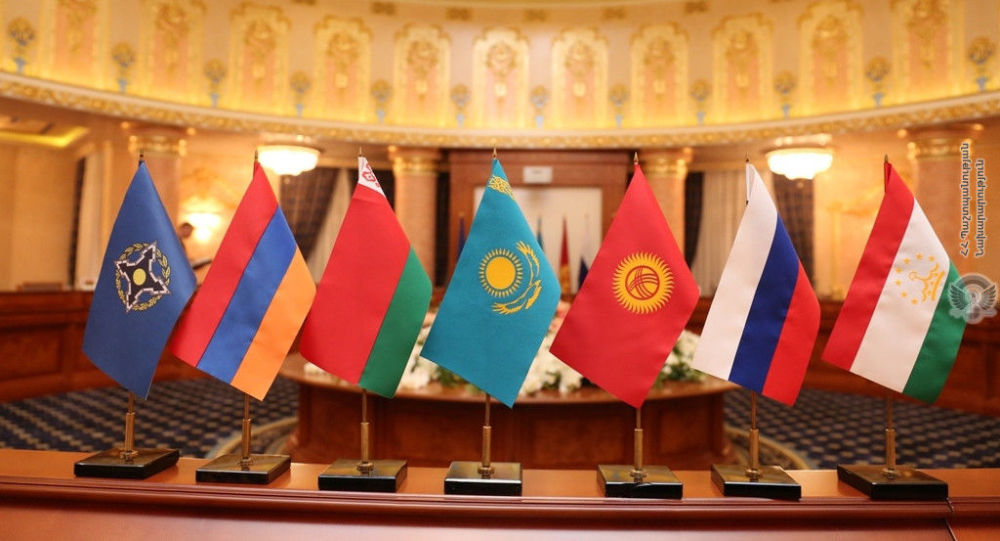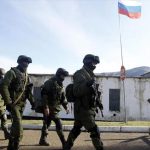- 24 May, 2021
- Military Cooperation

The situation in different sections of the Armenian-Azerbaijani border in recent days has also become a subject of debate on the effectiveness of the Collective Security Treaty Organization (CSTO).
As it is known, since May 12, the Armed Forces of Azerbaijan have made an incursion on the internationally recognized territory of the Republic of Armenia, advancing about 3.5 kilometers in the Lake Sev section of Syunik Province. The Azeris also violated the Armenian border in the Gegharkunik Province, in the Upper Shorzha section, also making significant advancement there.
On May 15, Armenia officially applied to the CSTO to launch consultations provided for in Article 2 of the charter of the organization.
In particular, Article 2 of the CSTO Charter stipulates that if the territorial integrity, sovereignty, security and stability of any of the member states are endangered, the members shall immediately launch a mechanism of joint consultations to coordinate their positions and eliminate the threat and provide assistance to that country.
However, as of May 24, the CSTO has not made any practical intervention or targeted statement.
What is the CSTO?
The Collective Security Treaty Organization was established on May 15, 1992 by the leaders of Armenia, Kazakhstan, Kyrgyzstan, Russia, Tajikistan and Uzbekistan. Azerbaijan, Belarus and Georgia joined the treaty in September 1993. However, later Georgia and Azerbaijan refused to extend their membership. Uzbekistan has also left the organization. The current members of the organization are Armenia, Russia, Belarus, Tajikistan, Kazakhstan and Kyrgyzstan.
The CSTO was, in fact, established to create a common security environment for the independent states that emerged after the collapse of the Soviet Union, as an alternative to the security environment that existed within the Soviet Union. The declared goals of the organization are the enhancement of peace, international and regional security and stability, the collective defense of the independence, territorial integrity and sovereignty of the member states. At the same time, priority is given to the political means of achieving the above-mentioned goals.
At the heart of the CSTO ideology is not the collective reaction to any specific threat, but simply the cooperation of the former Soviet countries in the military and military-political domains. The CSTO member states have no common enemies, adversaries, threats or values. What, say, threatens CSTO member Tajikistan, does not threaten, for example, Armenia, and the challenges Armenia faces are not the same for Kazakhstan. Moreover, many of the CSTO member states (Kazakhstan or Belarus) have much stronger ties and mutual interests with Armenia’s adversary Azerbaijan than with Armenia itself.
Armenia’s adversary Azerbaijan, also a former Soviet republic, is a member of the Commonwealth of Independent States (CIS) established after the collapse of the Soviet Union. The members of this organization have organic ties with each other due to the common history, historical-cultural commonalities and economic relations within the former empire․ Such an environment certainly further mitigates the so-called Armenian-Azerbaijani conflict in the “eyes” of the CSTO member states and makes Armenia’s expectations from this organization even more vague.
It is noteworthy that in a recent interview with the Russian “Novaya Gazeta” newspaper, former CSTO Secretary General Nikolay Bordyuzha literally stressed that “the use of collective forces against any state that was formerly part of the USSR is the most extreme measure. We must always strive to resolve the conflict by political means, which is happening now. ”
Moreover, in a recent interview with Izvestia, Russian Deputy Foreign Minister Andrei Rudenko noted that the doors of the CSTO are always open for Azerbaijan, which, in his words, is hindered by the absence of diplomatic relations between Armenia and Azerbaijan. “Once they (relations – Ed․) are established, and we hope that sooner or later they will, the issue will be brought to a practical level in one way or another.”
In general, the expansion of the CSTO, including at the expense of Azerbaijan, is in Russia’s interest, which thus shows the world that it has allies and maintains the influence it had during the Soviet Union.
Meanwhile…
The most effective military and political organization in the world is the North Atlantic Treaty Organization (NATO), which involves almost all European countries, Turkey, as well as the United States and Canada.
NATO was established on April 4, 1949. The United States, Canada, Iceland, the United Kingdom, France, Belgium, the Netherlands, Luxembourg, Norway, Denmark, Italy and Portugal were initially members of the organization. The purpose of establishing the NATO was to protect Europe from the influence of the Soviet Union. Currently, one of the declared goals of the organization is to curb any aggression against any NATO member state.
Unlike the CSTO, NATO was created not as an alternative to any former security system, but as a means of protection from a specific challenge. Moreover, that challenge was common for the member-states of the organization.
Later, along with its expansion (by the way, unlike the CSTO, NATO is constantly expanding, not shrinking), there were a number of conflicts of interest within the organization, such as the confrontation between Turkey and Greece with regard to Cyprus, which, however, did not affect the unity of the structure. This was manifested in the joint operations and joint positions of NATO forces in Yugoslavia, Afghanistan and Iraq. Besides, the values shared by the member states of this organization are no less important, and, perhaps, all the countries except for Turkey share common cultural, historical and democratic values.
Thus, in the current situation, Armenia’s expectations from the CSTO should not be too high. Judging by its declared goals, the environment in which it was created and operates, the CSTO will not be able to express tough positions in favor of Armenia. As for the positions of the individual CSTO member states, the “Soviet past” and historical and political commonalities will be considered primary, rather than տհե obligations under the treaty. Thus, the CSTO is completely ineffective for Armenia in the conflict against Azerbaijan.
Vahe Ghukasyan
Union of Informed Citizens




